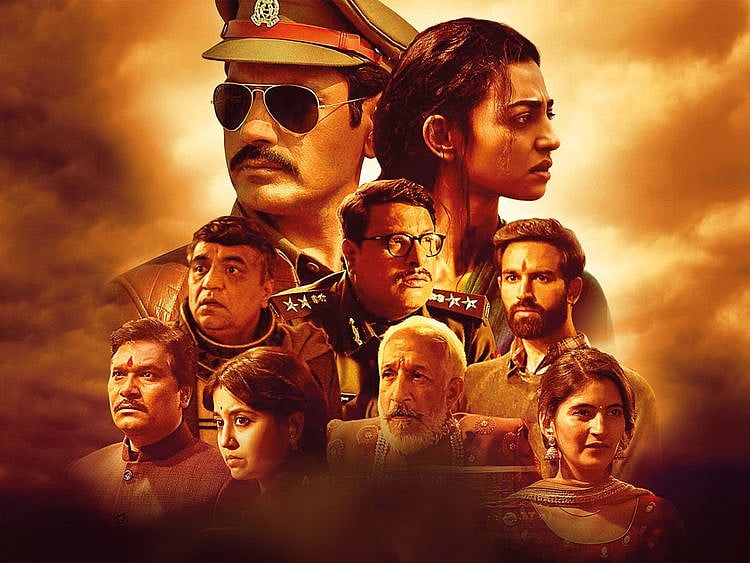On a cold winter night in Uttar Pradesh, a night of revelry turns tragic when a rich aristocrat is murdered after his wedding. When an officer obsessed with the truth takes over the case, a grisly tale unfolds, with fascinating twists and turns. No spoilers here, but Raat Akeli Hai, a Netflix film starring Nawazuddin Siddique and Radhika Apte, is a solid whodunnit that’s just one in a slew of great content coming out of India — thanks to a fresh focus on stories and writers.
“I give a lot of credit to the emergence of multiplexes, which made space for films that weren’t in the mainstream masala format,” says Chaitanya Hegde, Co-founder of Tulsea, a talent management agency that opened its doors batting for writers in 2010. “Now, with the OTTs, you could be a writer of any genre and still find an audience for your story.”
What these platforms have also done is to bring content from all over the world to our homes, and this exposure is expanding perspectives on what a good story can be. “It’s all in the telling of the tale, isn’t it?” says Hegde.
Crafting a difference
For Smita Singh, who wrote Raat Akeli Hai and has worked on Sacred Games, the hit Netflix show, viewers who want long-format stories to be engaging don’t care about big names. “I think the stories in demand are as diverse and challenging intellectually as the people tuning in,” she says. “It’s finally ok to be a niche storyteller.”
The past few years have seen all kinds of non-traditional stories getting screen space in India. From movies like Shoojit Sircar’s Gulabo Sitabo and Anushka Sharma-produced supernatural thriller Bulbbul, to web series like Your Honour, The Family Man, Mirzapur and Made in Heaven, the usual format is being turned on its head. This also means gendered roles are getting blurred and the world is your oyster. And while mainstream films like Sooryavanshi are going nowhere, pan-Indian industries are more open-minded about putting their money into varied content.
“We’re in a time and space where a progressive movie like Chandigarh Kare Aashiqui is getting made in a commercial space,” says Hegde.
Spinning tales together
Arati Raval, who made her debut with the story Interview as a part of Netflix’s Feels Like Ishq anthology, says that with OTT shows, writers have come together as a community. “Writing has become more democratic and accessible. It is more collaborative, allows you to learn from people and teaches you how to work with others, as opposed to being a lonely exercise.”
More and more writers are also coming together from different parts of the country, doing away with geographical and linguistic barriers and adding more flavour, nuance, and perspective to the mix. This is also leading to more exciting content – The Family Man, for example, was created by Raj Nidimoru and Krishna D.K. Andhadhun was co-written by Kannada filmmaker Hemanth Rao.
“In the South, there’s a lot of emphasis on storytelling, the plot, its design, etc.,” says Rao. This is difficult for Hindi content because the language itself is so diverse across India, and every region has its own flavour, making it hard to make something that works for everyone. Nevertheless, the South Indian industries, Rao adds, stay a step ahead because there is an “insane desire to tell stories in a unique way. Decisions are made quickly, and it’s the stories that are taking chances that are breaking through.” And it is this expertise that regional storytellers bring to the table.
Teething troubles — and solutions
Of course, a long road lies ahead. “Generally the idea of people [production houses] understanding content is a challenge,” says Singh. “You write something, you pitch it, and the decision–maker has gatekeepers who take very subjective calls on what’s good and what’s not. There is a certain arbitrariness to the process. Perspective and eloquence often replace actual grounded storytelling skills. That really needs to change.”
Raval says too much has happened too fast, and often leads to writing stories on crazy deadlines, where the creative process becomes a pain. “The West has mastered this art, so they can get a story ready in three to six months. We’re not there yet. Plus, we don’t have enough experienced showrunners to shepherd us through the process.”
Writing too needs to be developed as a proper skill. India doesn’t have enough writing schools to train screenwriters, but immersing oneself in different content really helps, says Raval. Her experience working at a production company that produced award-winning films like Dosar, The Last Lear and Do Dooni Char, really grew her. Singh too emphasises, “Ideas and intellect are not substitutes for actual skills.”
For Rao, the coming together of regional industries to create content will eventually lead to generating global demand. “In five years, I believe we will be what the South Korean industry is today,” he says.
Sign up for the Daily Briefing
Get the latest news and updates straight to your inbox
Network Links
GN StoreDownload our app
© Al Nisr Publishing LLC 2026. All rights reserved.
